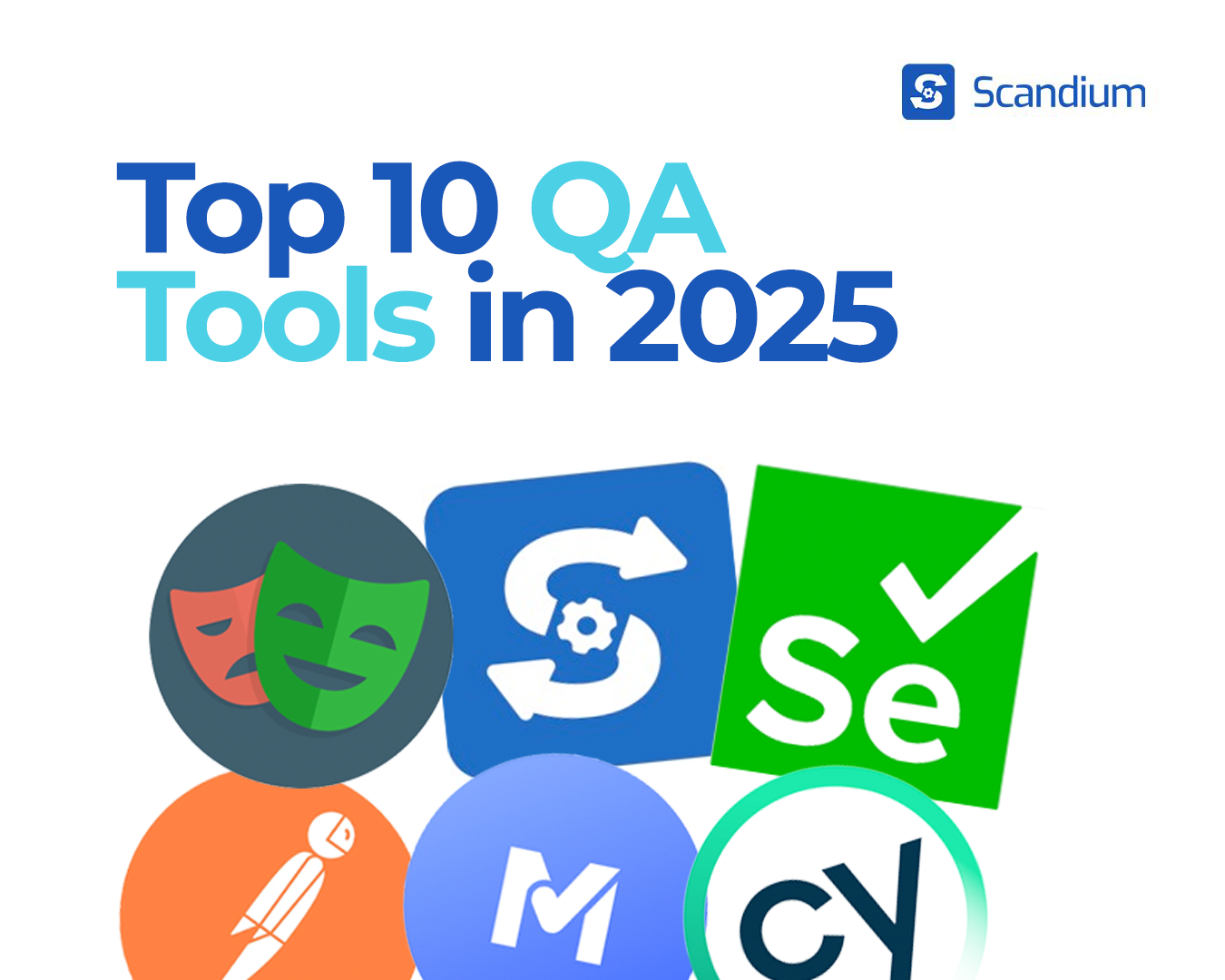
You’re likely a product owner, QA tester, or software developer who understands the critical role of quality in software products—especially if you’ve ever struggled with stubborn bugs. You know how frustrating and even damaging a bug-ridden application can be for both product owners and users.
As software development continues to evolve, the need for powerful Quality Assurance (QA) tools has never been greater. In 2025, QA teams are embracing top solutions to automate testing, improve collaboration, and ensure the delivery of high-quality software. Here’s a look at the top 10 QA tools in 2025 that are making a significant impact in the industry.
1. Scandium (Best for No-Code Test Automation)
Scandium stands out as a no-code test automation platform that empowers testers, developers, and product managers to automate web, mobile, and API testing without writing code. It offers features like test case management, seamless CI/CD integration, and AI-powered failure diagnostics, making test automation accessible to teams of all skill levels.
Key Features:
- No-code test automation
- AI-driven test diagnostics
- Web, mobile, and API testing support
- Seamless integration with CI/CD pipelines
2. Selenium (Best for Open-Source Web Testing)
A long-time favourite among QA engineers, Selenium continues to dominate in 2025 as the go-to open-source tool for web automation. It supports multiple programming languages and browsers, making it an essential tool for teams that prefer custom automation frameworks.
Key Features:
- Cross-browser testing
- Integration with frameworks like TestNG and JUnit
- Support for multiple programming languages
3. Testim (Best for AI-Powered Test Automation)
Testim leverages artificial intelligence to speed up test authoring and maintenance. It allows teams to create stable and resilient tests with minimal effort, making it ideal for fast-moving development environments.
Key Features:
- AI-based test maintenance
- Self-healing test automation
- Parallel test execution
4. Postman (Best for API Testing)
Postman remains a leading choice for API testing, allowing QA teams to easily design, test, and document APIs. With automated testing and collaboration features, Postman streamlines API validation for developers and testers alike.
Key Features:
- API test automation
- Mock servers and monitoring
- Integrated API documentation
5. Cypress (Best for Frontend Testing)
Cypress is a JavaScript-based end-to-end testing framework designed for modern web applications. It offers fast and reliable testing for front-end applications and integrates seamlessly with CI/CD workflows.
Key Features:
- Real-time debugging
- Automatic waiting and snapshots
- Fast execution in headless mode
6. Playwright (Best for Cross-Browser Testing)
Developed by Microsoft, Playwright provides powerful automation capabilities for testing modern web applications across multiple browsers, including Chromium, Firefox, and WebKit.
Key Features:
- Supports multiple browsers
- Headless testing
- Network interception for better debugging
7. Katalon Studio (Best for All-in-One Automation)
Katalon Studio is an all-in-one automation tool supporting web, API, mobile, and desktop testing. With built-in test management and AI-powered maintenance, it’s a great choice for teams looking for a comprehensive solution.
Key Features:
- Codeless test automation
- Built-in test management
- AI-powered smart execution
8. Appium (Best for Mobile Testing)
Appium remains the top choice for mobile test automation, providing an open-source framework for testing native, hybrid, and mobile web apps across different platforms.
Key Features:
- Cross-platform mobile testing
- Support for native and hybrid apps
- Integration with Selenium WebDriver
9. Tricentis Tosca (Best for Enterprise Test Automation)
Tricentis Tosca is an enterprise-level test automation tool that provides model-based testing and AI-driven test maintenance, making it ideal for large organizations.
Key Features:
- Model-based test automation
- AI-driven test maintenance
- End-to-end test coverage
10. JMeter (Best for Performance Testing)
Apache JMeter remains a strong contender for performance and load testing in 2025, allowing QA teams to assess system performance under varying loads.
Key Features:
- Load and stress testing
- Real-time performance analysis
- Extensive plugin support
Conclusion
Choosing the right QA tool in 2025 depends on your team’s specific needs. Whether you require no-code automation (Scandium), AI-powered test maintenance, or robust API testing, this list provides a diverse range of options to help ensure your software meets the highest quality standards. As QA keeps evolving, these tools will be key in shaping the future of software testing.
